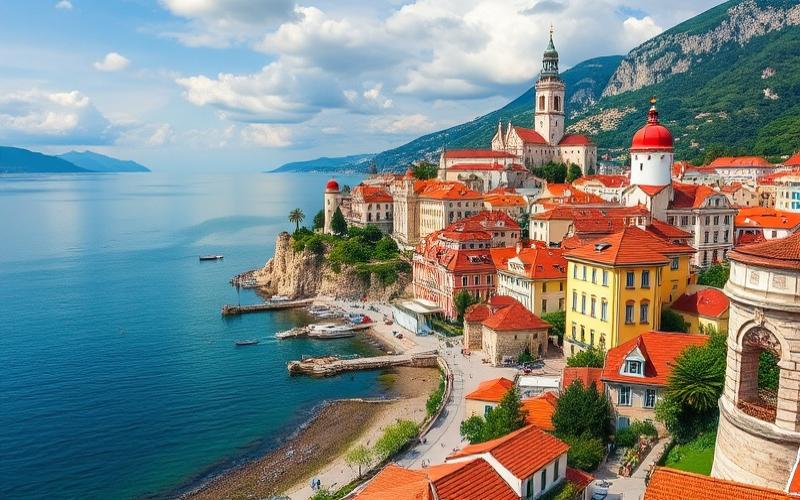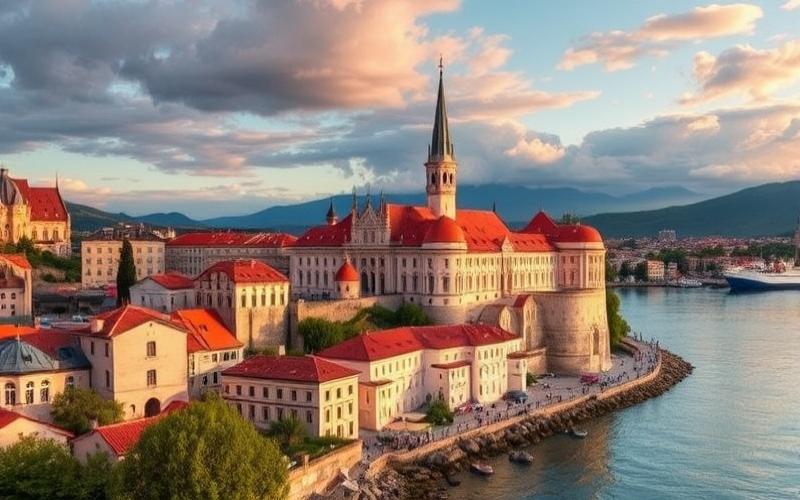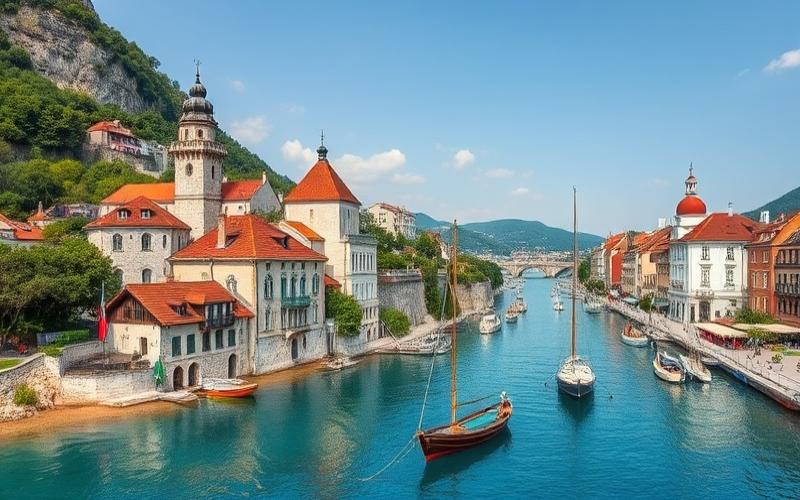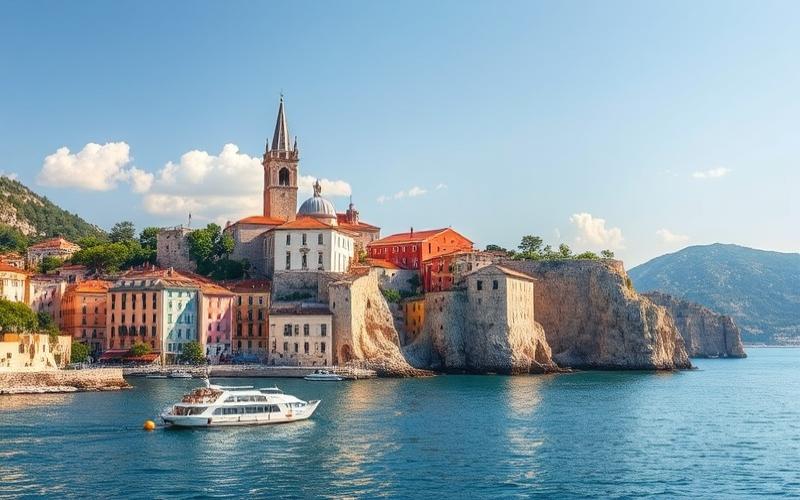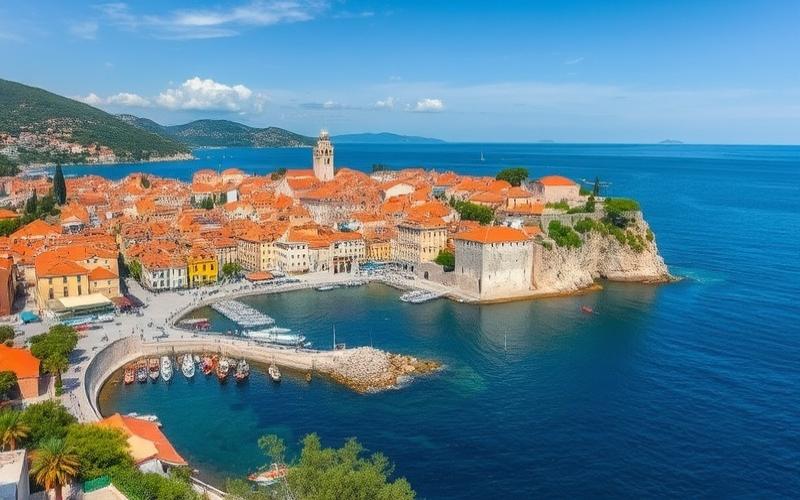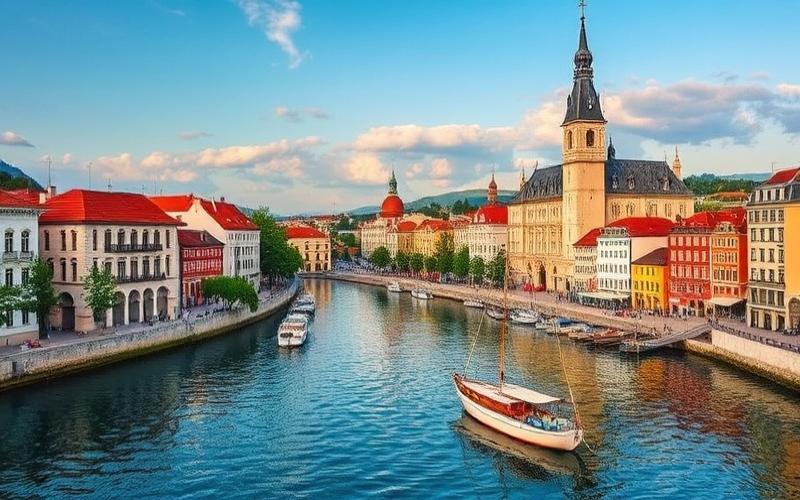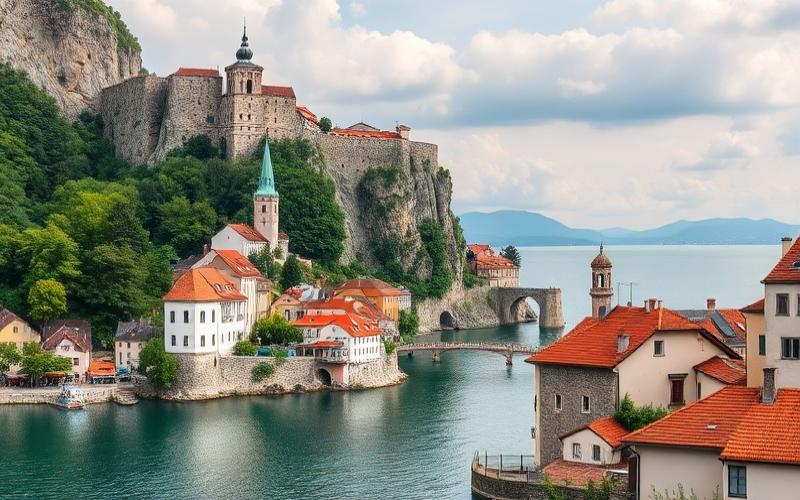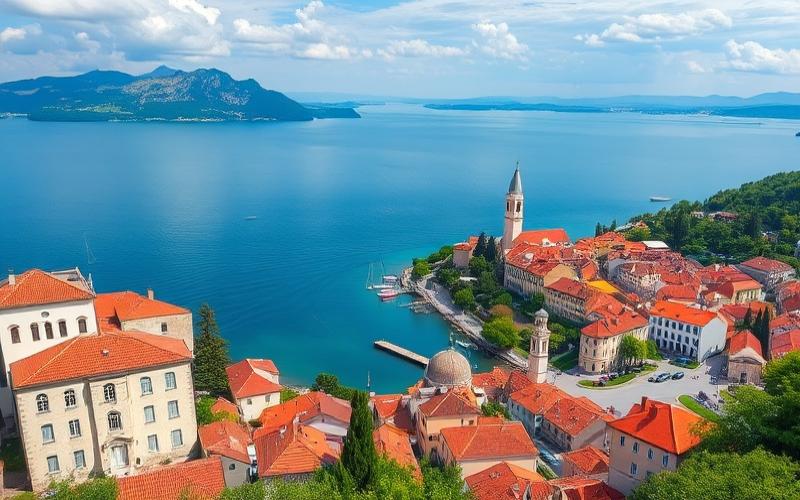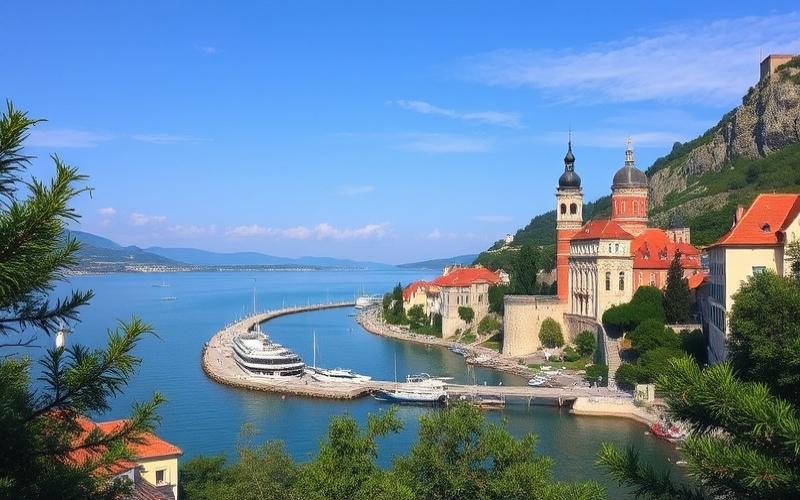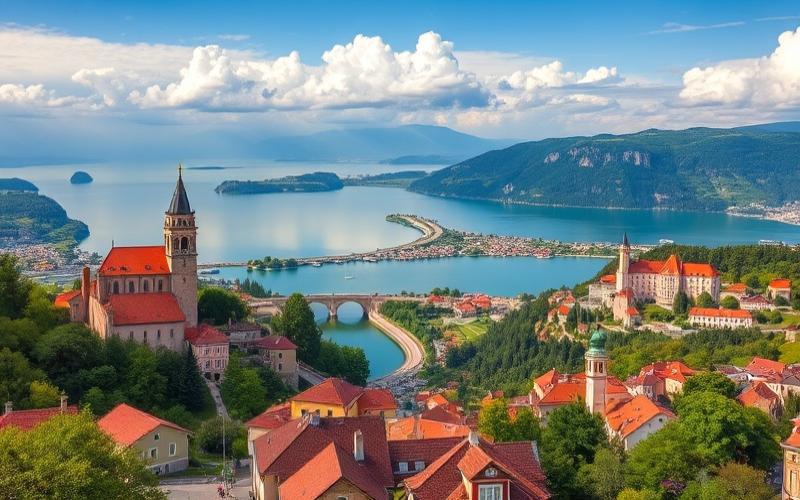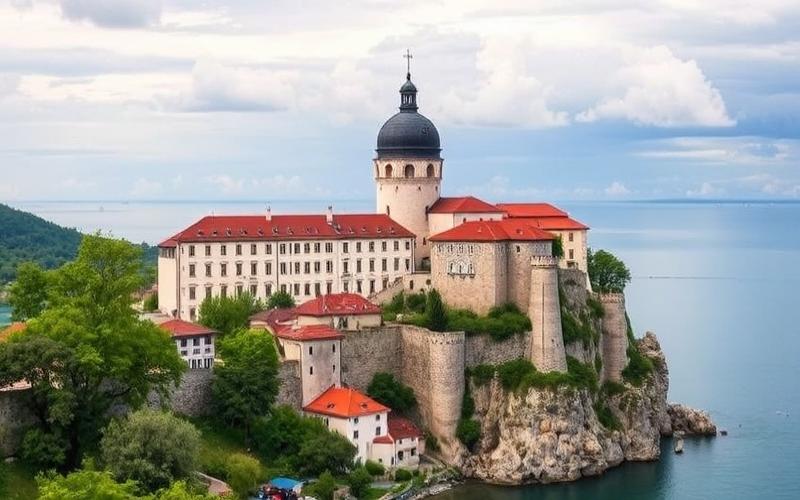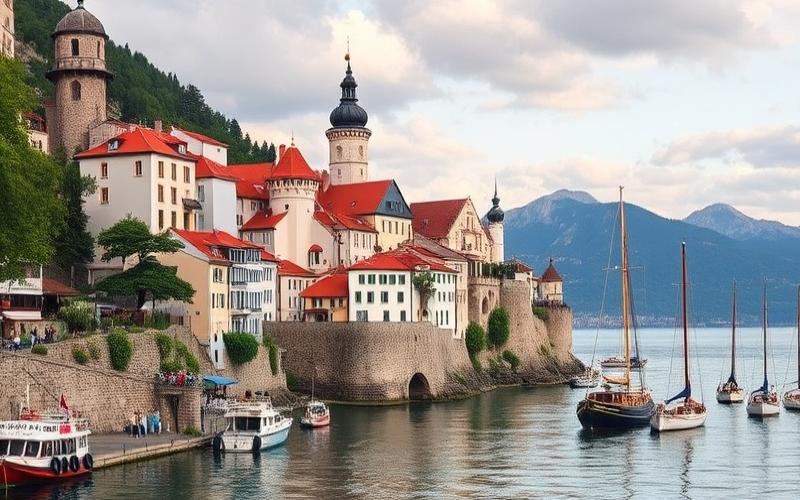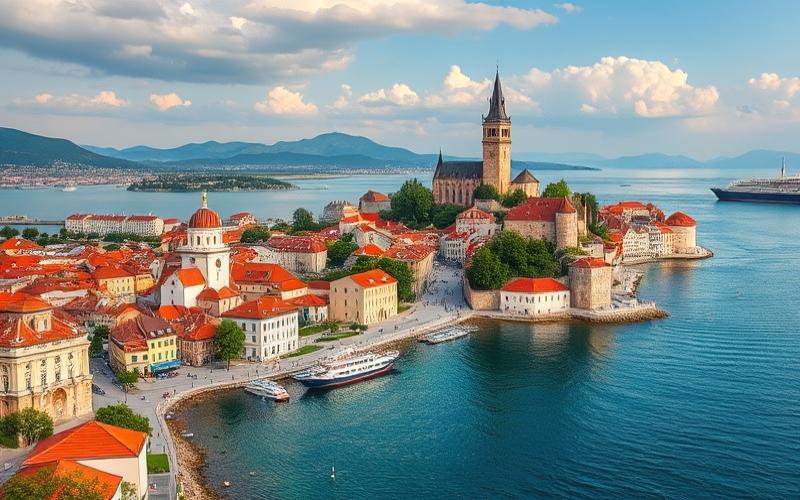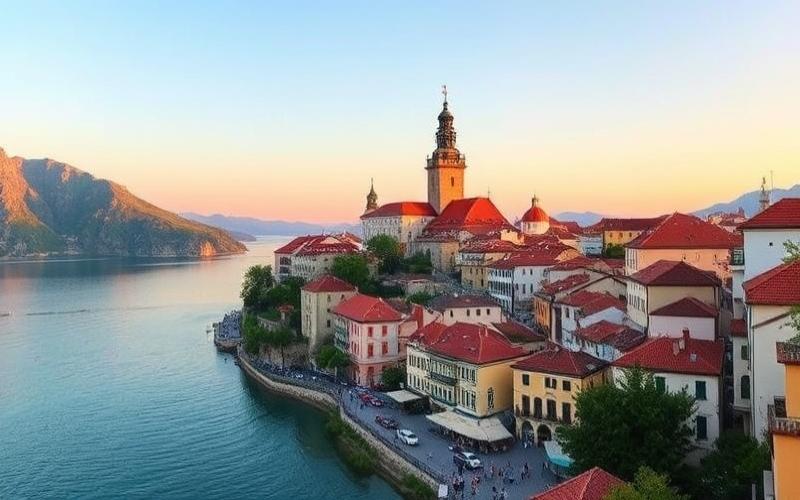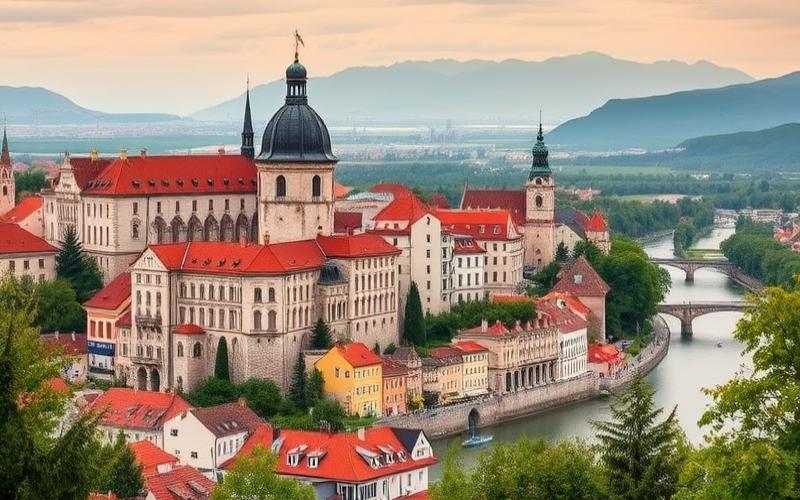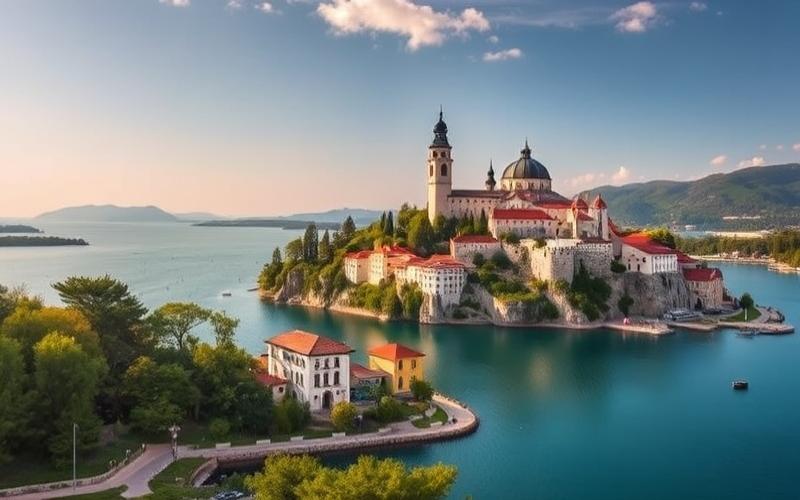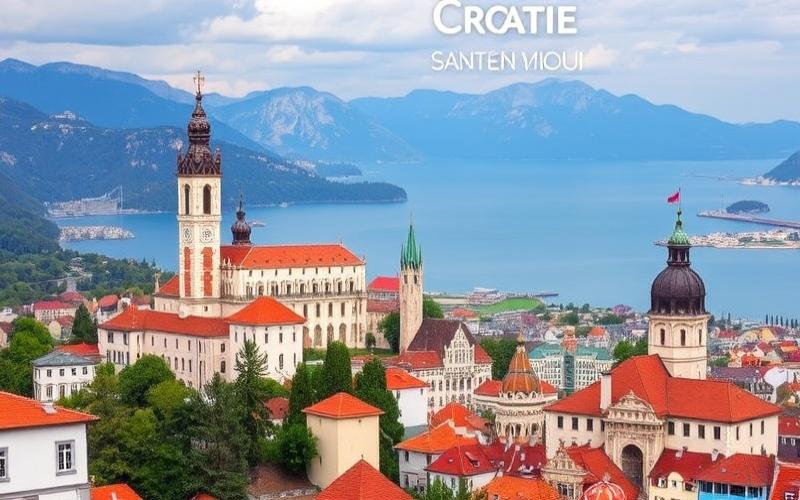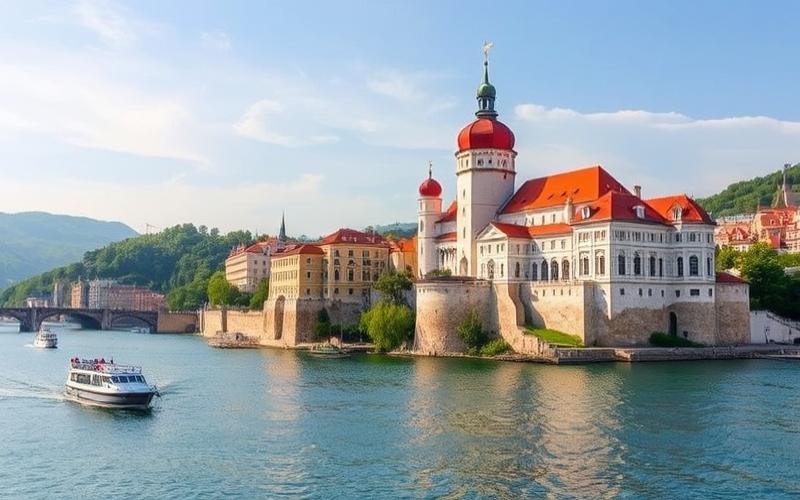
 Published on and written by Cyril Jarnias
Published on and written by Cyril Jarnias
Croatia’s job market offers unique opportunities for expatriates, with a growing economy and booming sectors such as tourism, technology, and renewable energy.
Thanks to its EU membership, Croatia benefits from various programs and funding that stimulate innovation and entrepreneurship, allowing foreign professionals to easily integrate into various fields.
With an enviable quality of life, rich culture, and breathtaking landscapes, Croatia is increasingly attracting international talent seeking professional fulfillment while discovering a new way of living.
Decoding the Croatian Job Market: Strategy for Expatriates
Analysis of Booming Industry Sectors in Croatia
| Sector | In-Demand Jobs | Monthly Salary Range (EUR) |
|---|---|---|
| Technology / IT | Software Developer, Data Analyst, Cybersecurity Specialist | 1,600 – 2,500 |
| Tourism & Hospitality | Hotel Manager, Head Chef, Tour Guide, Travel Agent | 900 – 2,000 |
| Construction | Engineer, Construction Manager, Building Technician | 1,200 – 2,300 |
| Professional Services | Accountant, Financial Advisor, Human Resources | 1,300 – 2,400 |
| Logistics & Transportation | Logistics Manager, Fleet Manager | 1,300 – 2,100 |
The technology sector remains the most dynamic, while tourism continues to be an economic pillar, especially along the coast. Construction and logistics also show strong growth, meeting infrastructure and transportation demands.
Most Sought-After Skills by Local Employers
- Proficiency in information technology (programming, cybersecurity, data science)
- Language skills (English essential, German or Italian valued in tourism)
- Experience in project management and leading multicultural teams
- Knowledge of European standards (quality, safety, compliance)
- Adaptability and initiative
Impact of Croatian Labor Legislation on Expatriates
- Employment Contracts: Expatriates enjoy the same protections as locals, with a mandatory written employment contract.
- Work Permits: EU citizens don’t need a specific permit but must register residence. Non-EU citizens require a residence and work permit.
- Minimum Wage: 970 EUR gross per month (2025).
- Social Protection: Access to social benefits and health insurance upon official employment.
- Probation and Notice Period: Typically 6-month probation, notice period varies by seniority.
Recommendations for Effectively Entering the Croatian Market
- Adapt CV and cover letter to local standards (concise formats, highlighting international experience).
- Target growing sectors and respond to job postings on major Croatian employment portals.
- Highlight language skills and take Croatian language courses to facilitate integration.
- Learn about regional specifics: Zagreb for services and IT, Split and Rijeka for tourism and new technologies, inland regions for logistics and industry.
- Seek assistance from recruitment agencies specializing in expatriate placement.
Role of Professional Networks and Entrepreneurship Platforms
- Networks like LinkedIn, EURES, or the Franco-Croatian Chamber of Commerce facilitate connections with local recruiters.
- Incubators and coworking spaces (Zagreb, Split) support expatriate entrepreneurial initiatives.
- Participating in job fairs, meetups, and industry events helps build connections and identify unpublished opportunities.
Potential Challenges for Expatriates and Solutions
- Language Barrier: Invest in learning Croatian and prioritize international companies.
- Degree Recognition: Have qualifications recognized by Croatian authorities before applying.
- Limited Networking: Increase participation in professional events and join expatriate groups.
- Cultural Differences in Management: Research local management practices, adopt clear and respectful communication.
- Complex Administrative Procedures: Anticipate residence and work permit procedures, seek help from specialized agencies or the Embassy.
Key Takeaways
Croatia offers real opportunities for expatriates, particularly in IT, tourism, and construction. Integration requires knowledge of local practices, language proficiency, and investment in professional networks. Challenges exist but are surmountable through thorough preparation and support from local and international assistance structures.
Good to Know:
Croatian technology and tourism sectors are booming, with high demand for project management and software development skills; for successful integration, develop local networks through platforms like LinkedIn and inform yourself about local labor legislation to avoid administrative pitfalls.
Salary and Benefits: What Expatriates Can Expect in Croatia
Typical Salary Trends for Expatriates in Croatia (2025)
| Sector | Expatriate Gross Monthly Salary (estimate) | Local Gross Monthly Salary (average) | Differences and Remarks |
|---|---|---|---|
| Technology | 1,800–3,500 € | 1,500–2,200 € | Skilled technical profiles are rare, allowing expatriates to negotiate significantly higher salaries than local averages. |
| Tourism | 1,400–2,500 € | 1,200–1,800 € | Expatriates mainly hold management or specialized positions in large hotels and international agencies. |
| Finance | 2,000–4,000 € | 1,600–2,400 € | International banks and audit firms offer more competitive packages to international profiles. |
- Average Gross Salary in Croatia (2025): approximately 1,300 to 1,450 € per month according to sources.
- Minimum Gross Wage (2025): between 840 and 970 € depending on collective agreements and recent developments.
Expatriate vs. Local Comparison:
Expatriates typically earn 20 to 50% more than local workers in skilled sectors (IT, finance, management).
Differences are less pronounced in tourism, except for management positions.
Common Benefits for Expatriates
- Private Health Plans: Complementary coverage often covered by employer, in addition to mandatory public health insurance.
- Housing Allowances: Full or partial rent coverage, especially in Zagreb and major tourist cities.
- Tuition Subsidies: Contribution to international or private schools for expatriate children.
- Transportation and Company Vehicles: Available for managers or technical experts.
- Relocation Assistance: Coverage of moving costs, administrative procedures, and sometimes a settling-in allowance.
Example of Typical Expatriate Package:
- Gross Salary: 2,500 € / month
- Housing: 700 € / month (covered)
- Premium Health Insurance: included
- Tuition Fees: 50–100% covered for 1-2 children
- Annual Performance Bonus: based on results
Croatian Labor Legislation for Expatriates
- Employment Contracts: Must comply with Croatian Labor Code, requiring minimum wage, maximum weekly hours (40h), paid leave (minimum 20 working days/year), and protection against unfair dismissal.
- Work Permits: Non-EU expatriates must obtain specific permits; EU nationals benefit from simplified procedures.
- Collective Agreements: May set sector-specific minimum wages above legal minimum.
- Social Security: Mandatory enrollment in Croatian system, with bilateral agreements to avoid double contributions.
Tips for Negotiating a Competitive Package in Croatia
- Research local cost of living, particularly in Zagreb and tourist centers where rents are high.
- Request housing compensation if offered salary is close to local average.
- Negotiate inclusion of private health insurance covering family.
- Ask for tuition fee coverage for children, especially if international schooling is needed.
- Verify mobility and repatriation clauses (return coverage upon mission completion).
- Compare overall package (salary + benefits + bonuses) to cost of living to ensure higher purchasing power than locals.
Key Takeaways
Expatriates in Croatia typically benefit from above-average salaries and attractive packages, but it’s essential to negotiate additional benefits to compensate for rising living costs in major cities and overall lower salary levels compared to Western Europe.
Good to Know:
Expatriates in Croatia can expect competitive salaries in technology, tourism, and finance, often accompanied by benefits like health insurance, housing allowances, and schooling assistance, although these salaries may be lower than in Western Europe. To maximize opportunities, they should research Croatian labor legislation and prepare to negotiate advantageous packages using benchmarks and comparisons with local workers.
Essential Agencies to Boost Your Job Search
Main Professional Agencies in Croatia for Expatriates
| Agency | Specialties | Services Offered | Preferred Sectors | Example Companies | Available Languages | Online Presence | Expatriate Feedback |
|---|---|---|---|---|---|---|---|
| Manpower Croatia | International Recruitment | Placement, Assessment, Coaching, Career Advice | Engineering, IT, Administration | Siemens, Ericsson, Local Banks | English, Croatian | Website, LinkedIn | Track record with thousands of expatriates, recognized for efficiency |
| Dynamic Staffing Services | Multi-Sector Recruitment | Assessment, Training, Personalized Support | IT, Finance, Healthcare, Industry | Local/International Companies | English, Croatian | Website | Personalized support, flexible approach |
| Dekra Arbeit Group | General Placement | Job Offers, Candidate Resources | Industry, Logistics, Services | Lidl, INA, Transport Companies | Croatian, English | Website, Job Platforms | Good responsiveness, varied offers |
| Future Jobs Recruitment | Digital and Social Media Recruitment | Offers, Advice, Facebook Follow-up | IT, Digital, Marketing, Services | Startups, Digital Agencies | English, Croatian | Facebook, Social Media | Very active, positive feedback on speed |
| Jobs in Croatia Employment Agency | Opportunities for Expatriates | Facebook Offers, Advice, Connections | Various Sectors | Local SMEs, Commerce, Tourism | English, Croatian | Regular updates, appreciated for proximity |
Services Provided and Usefulness for Expatriates
- Guidance and Coaching: Assistance in job search, interview preparation, CV adaptation.
- Access to International and Local Offers: Ability to apply to multinational or local companies based on profile.
- Administrative Support: Advice on legal procedures (work permits, visas, contracts).
- Multilingual Platforms: Most agencies offer services in English and Croatian, some also provide French or German.
- Personalized Follow-up: Some agencies like Dynamic Staffing Services offer tailored tracking for each candidate, facilitating integration.
Preferred Industry Sectors
- IT and Engineering: High demand for technical profiles, especially in international companies.
- Tourism and Hospitality: Seasonal positions accessible to non-Croatians, particularly on Adriatic coast.
- Finance and Services: Opportunities for managers and multilingual profiles.
- Digital Marketing and Customer Service: Rapid growth in digital sector.
Examples of Frequently Recruited Companies
- Multinationals: Siemens, Ericsson, IBM, Lidl.
- Banks and Insurance: Zagrebačka banka, Croatia Osiguranje.
- Startups and Digital Agencies: Tech sector companies in Zagreb and Split.
- Local SMEs: Tourism, restaurant, commerce sectors.
Practicality and Access
- Online Presence: Each agency has a website or is active on major platforms (LinkedIn, Facebook, MojPosao, Posao.hr).
- Expatriate Groups: Numerous dedicated Facebook groups (Expat Croatia, Expats in Zagreb, Jobs for Foreigners in Croatia), facilitating information exchange and access to offers.
- Service Languages: English almost systematic, Croatian for administrative procedures, sometimes French or German depending on agency.
Expatriate Experience Feedback
- Manpower Croatia: Track record with thousands of expatriates, recognized for efficiency and extensive network.
- Future Jobs Recruitment: Highly appreciated for speed and proximity through social media.
- Dekra Arbeit Group: Varied offers, good support for local procedures.
- Specialized Facebook Groups: Many expatriates find first jobs through these networks, with strong community support.
Practical Lists for New Arrivals
- Create accounts on MojPosao, Posao.hr, and Indeed Croatia.
- Join Facebook expatriate groups in destination city.
- Regularly check agency pages for recent offers.
- Prioritize applications in English for international positions.
- Participate in meetups or language cafes to network and integrate faster.
Key Takeaways:
⧫ Croatian professional agencies offer comprehensive multilingual support, covering all dynamic sectors in the country.
⧫ Expatriate feedback is generally positive, with strong recommendations for using social media and specialized platforms to accelerate professional integration.
Good to Know:
Profesio agency, specializing in recruitment for technology and finance sectors, is recognized for its effectiveness with expatriates, offering services in English and German, and frequently collaborating with companies like Infobip and Adris Group. Expats.hr, another reputable agency, often helps secure positions in tourism and hospitality, with a website accessible in multiple languages and numerous positive reviews from expatriates who found employment in Croatia.
Booming Sectors: Where to Focus for Landing a Job
Growing Economic Sectors in Croatia Offering Opportunities for Expatriates
The most dynamic and promising sectors for employment in Croatia are tourism, information technology (IT), renewable energy, and financial services. Each attracts investments and offers numerous opportunities, particularly for qualified expatriates.
| Sector | Share of GDP | Recent Growth Rate | Opportunities for Expatriates |
|---|---|---|---|
| Tourism | 20% | Strong Post-Covid Recovery | Hospitality, Restaurants, Travel Agencies |
| Information Technology | Growing | +3.6% (GDP 2024) | Software Development, Data, Cybersecurity |
| Renewable Energy | Expanding | Major Projects in 2025 | Engineering, Project Management, R&D |
| Financial Services | 4.2% | Confirmed Resilience | Analyst, Manager, Fintech |
The tourism sector remains Croatia’s main economic driver, representing 20% of GDP. After rapid recovery in 2023, it continues to offer jobs in hospitality, restaurants, establishment management, and tour guiding, especially along the Adriatic coast.
The technology sector is rapidly expanding, attracting international investments, with Croatia establishing itself as a regional hub for startups and IT companies. Highly sought-after positions include software developer, network engineer, data analyst, and cybersecurity specialist.
Renewable energy benefits from significant investments, particularly in modernizing gas infrastructure (Krk LNG terminal expansion) and developing geothermal energy and electromobility (Rimac Automobili campus). This sector seeks engineers, project managers, and R&D experts.
Financial services show stability and offer opportunities in banking, insurance, accounting, and fintech, particularly in Zagreb.
Labor Market Trends and Expatriate Integration
- The rise of remote work allows expatriates to work for Croatian or foreign companies while residing locally.
- English proficiency is essential, particularly in IT, tourism, and financial services sectors. Often required for qualified positions and integration into international environments.
- Companies prioritize skills in project management, cross-cultural communication, adaptability, and digital competencies.
Successful Expatriate Case Studies
- A French developer settled in Split joined a local startup, benefiting from Croatia’s tech ecosystem and Mediterranean lifestyle.
- An Italian manager in Dubrovnik’s hotel sector advanced through ranks thanks to language skills and international experience, facilitating foreign client management.
- A German engineer in renewable energy led geothermal projects, benefiting from qualification recognition and sector dynamism.
Skills Sought by Employers
- Technical expertise (IT, engineering, finance)
- English proficiency, other European languages valued
- International experience and versatility
- Ability to work in multicultural teams
- Knowledge of digital tools and remote work
Administrative Procedures for Expatriates
- Obtain a work permit (application to Croatian Ministry of Interior)
- Present a job offer or employment contract
- Provide proof of health insurance and accommodation
- For EU citizens: simplified procedures, mandatory registration after three months
- For non-EU citizens: longer process, work visa required before arrival
Recent Statistics
- GDP Growth: +3.6% in 2024, +3.3% projected for 2025
- Average IT Sector Salary: 1,800 – 2,500 EUR/month
- Average Tourism Salary: 900 – 2,000 EUR/month depending on position
- Major renewable energy and infrastructure investments estimated over 6 billion EUR in next decade
Key Takeaways:
Croatia offers a supportive environment for qualified expatriates, particularly in tourism, tech, renewable energy, and finance, with strong demand for digital and language skills, and accessible administrative procedures especially for EU nationals.
Good to Know:
Croatia’s tourism, information technology, and renewable energy sectors show rapid growth, offering numerous opportunities to English-proficient expatriates; cybersecurity and project management skills are particularly sought-after. The financial services sector growth rate recently exceeded 5%, facilitating integration of experienced finance expatriates with simplified administrative procedures through a single work authorization.
Disclaimer: The information provided on this website is for informational purposes only and does not constitute financial, legal, or professional advice. We encourage you to consult qualified experts before making any investment, real estate, or expatriation decisions. Although we strive to maintain up-to-date and accurate information, we do not guarantee the completeness, accuracy, or timeliness of the proposed content. As investment and expatriation involve risks, we disclaim any liability for potential losses or damages arising from the use of this site. Your use of this site confirms your acceptance of these terms and your understanding of the associated risks.

